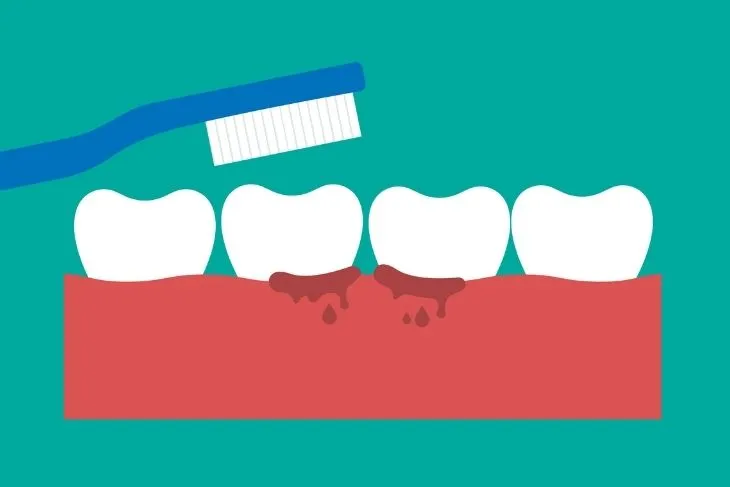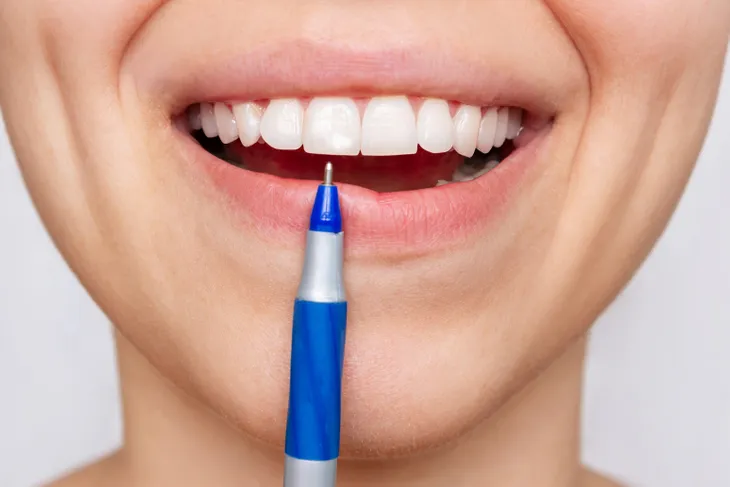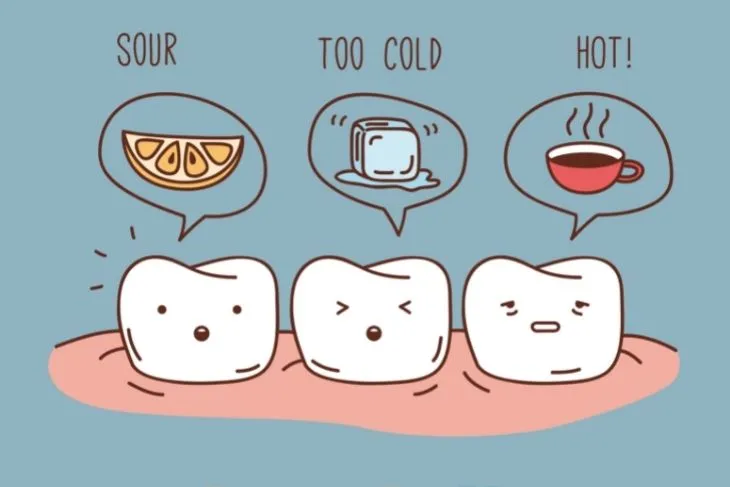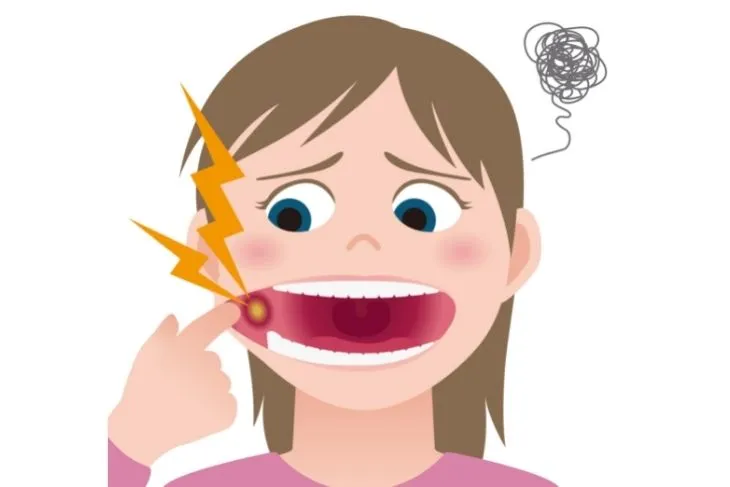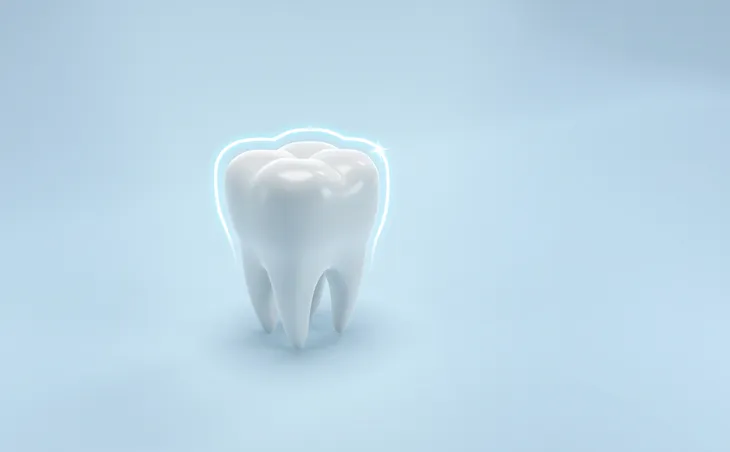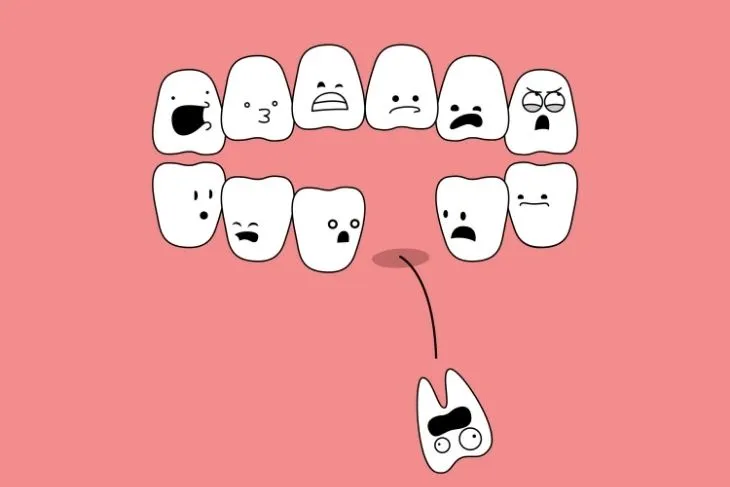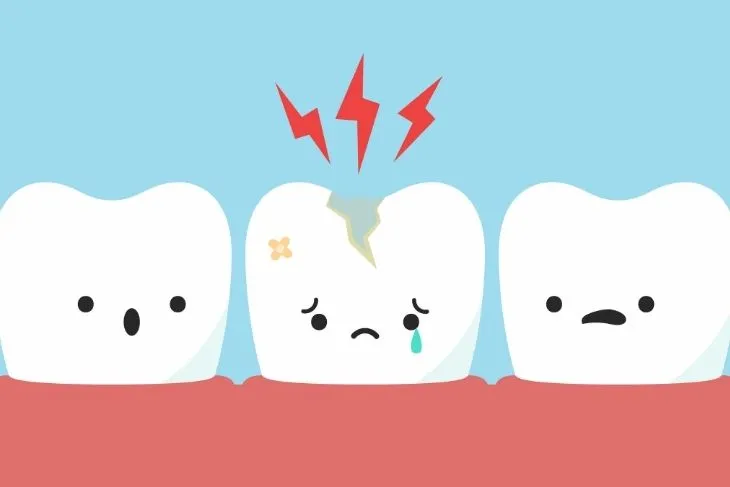- Good oral health is important because it not only combats oral disease, but poor dental health can increase risk of serious health conditions like heart disease.
- Be mindful of any physical changes in the mouth like bleeding, swollen gums, mouth sores, color changes, and cracked, loose, or lost teeth.
- Pain in the jaw, mouth, teeth or even in the form of sensitivity can be an indicator that something is wrong.
- To prevent oral disease, brush and floss at least twice a day and go for regular dental check up and cleanings.
Oral health is so important but it’s often overlooked. According to the World Health Organization, oral disease affects nearly 3.5 billion people. People either don’t brush their teeth enough or properly, they don’t floss every day, and many people don’t even visit the dentist on a regular basis! In certain areas of the world there is limited access to dental care, but even in America it’s estimated that 100 million people don’t go to the dentist annually.
While it might seem like the worst that can happen is a cavity here and there, it can actually be much more dangerous. Aside from the obvious issue of loosing teeth and developing gum disease, poor dental health increases our risk for other health conditions like heart disease. To stay healthy, be mindful of these 13 oral health warning signs that should never be ignored…
Bleeding or Swollen Gums
Not surprisingly, seeing blood in the sink after brushing your teeth is cause for concern. Healthy gums will not bleed if brushing properly or flossing regularly. Healthline explains that our gums (gingiva) are what hold our teeth in place. “They’re responsible for creating a barrier between your tooth roots, nerves, and blood vessels and the food and drinks you consume,” writes the source. If our gums aren’t healthy, it puts our teeth in jeopardy.
Bleeding or swollen gums could be a sign of gum disease, warns Healthline. It could mean there is a significant amount of bacteria in the mouth that is causing the gums to become inflamed. According to the Centers for Disease Control and Prevention (CDC), about 4 in 10 adults over the age of 30 had gum disease between 2009 and 20014. To protect your health, it’s important to see the dentist on a regular basis and have them assess your gum tissue and teeth.
White Spots on Teeth
If teeth start changing in their appearance, such as color or surface texture, take notice. One important sign to watch for is white spots on the teeth. White spots on the teeth are one of the early warning signs of tooth decay, says Kingtown Dental. These spots will appear before any other symptoms of decay like pain. Contact a dentist who can perform X-rays to detect any signs of decay before it gets too severe.
What can we do to prevent tooth decay? One of the most obvious solutions is to keep our teeth healthy with regular teeth cleanings. This will help deter plaque from building up. You should be brushing and flossing on a daily basis.
Sensitivity to Hot and Cold
Ever experienced discomfort after eating some ice cream or taking a sip of a hot drink? You could be dealing with sensitivity. It’s not an uncommon problem and often happens to people after they’ve had dental procedures like cavity fillings or crown placements. But Healthline warns that any unexplained sensitivity should raise an eyebrow and prompt a call to the dentist.
“Increased temperature sensitivity is a symptom of a dental abscess, which is a bacterial infection of a tooth or the gum area next to a tooth root,” writes Healthline. Other symptoms include a severe toothache, fever, and tender lymph nodes under the jaw or in the neck. If there is any facial swelling, seek emergency care, warns the source. Dental abscesses are a serious problem and if left untreated, the infection could spread to other areas of the body and even become life threatening.
Healthline also notes that temperature sensitivity can also be a warning sign of a cavity or thinning of dental enamel. In these cases a dentist can provide treatment.
Mouth and Jaw Pain
Stress can show up in the body in strange ways. While we obviously feel it mentally, it can also affect the body physically. WebMD explains that stress can cause a number of physical and mental disorders, including pain in the mouth or jaw, as well as cold sores. If you’re experiencing mouth or jaw pain, talk to a dentist who can help identify the root cause of this discomfort. Oftentimes it’s due to a treatable condition like toothache, sinus, or gum disease.
We mentioned earlier that oral health and heart disease are linked. This is an instance where it’s important to be vigilant and informed on the key signs. WebMD warns that mouth or jaw pain can be an indicator of a heart attack. Knowing this is extremely important and can help save a life. Check out this article for other signs of a heart attack.
Mouth Sores, Patches, or Lumps
We’ve all experienced a little sore in our mouth, whether it’s from accidentally biting a cheek or developing a white or yellowish canker sore. If any new sores, patches, or lumps develop in the mouth it’s best to consult a dentist. While they can be benign like a canker sore, they can also be the result of a fungal infection or another serious problem, warns WebMD.
Oral cancer typically starts off as a small white or red sore in the mouth. It’s one of the most common forms of cancer in the U.S. and often occurs in people who smoke or use any other form of tobacco or alcohol, says WebMD. Be mindful of sores that don’t easily heal, hard or rough areas, discolored tissue, changes in how teeth fit together, numbness or lumps or irregular tissue in the mouth, cheecks, neck, or head.
Growth in Mouth
In addition to sores or lumps, any kind of growth in the mouth should be closely examined by a dentist. Sometimes they are innocuous, says Kingtown Dental, but they can also be a sign of oral cancer. Some other common signs of oral cancer are lumps or sores that won’t heal, lesions, sudden bleeding, numbness in the mouth, pain or difficulty swallowing, and pain the mouth or jaw.
According to the Oral Cancer Foundation, there are over 450,000 new cases of oral cancer (or oropharyngeal cancer) globally each year, and 54,000 of these cases are within the U.S. People who are the most at risk are those who smoke, drink, eat a poor diet, or those who have HPV. Genetics can also play a role.
Toothache or Tooth Pain
Most people have experienced some tooth pain or even just a minor toothache from time to time. While it’s not normal, the big indicator that something is wrong is if the pain is persistent or protracted. Kingtown Dental explains that even if the pain subsides for a period of time, it’s still concerning. It could be a sign of a tooth infection or a symptom of several possible problems from a cavity to oral cancer, a sinus infection, or even a heart attack.
The source goes on to explain that if the pain is in just one tooth, it might be as simple as getting a tooth filling. However, even in this instance, acting in a timely fashion is important because the pain is caused by bacteria. If it affects the nerve, it might require something more complex like a root canal or a crown. You’ll need a dentist to perform an X-ray to decide the course of treatment.
Translucent Tooth Enamel
There’s a reason we call our teeth pearly whites — because they are supposed to be nice and white! Teeth that loose their white lustre and start looking more translucent are likely from erosion and enamel problems. These issues are often linked to eating disorders or an acid reflux problem, says WebMD.
Excessive vomiting, as seen with bulimia, can have a serious impact on our teeth. Our bodies are designed so that our teeth do not come in contact with the stomach acid for a reason. Because it can wear down our precious tooth enamel. WebMD lists the following as the most common oral health issues linked to eating disorders like bulimia:
- Dry mouth
- Dry and cracked lips
- Loss of tooth enamel
- Sensitive teeth
- Swollen salivary glands
Loose or Lost Teeth
We all loose our baby teeth as kids, but it’s definitely not something we want to see happening as adults. Once a tooth is lost — it’s doesn’t grow back! Teeth that fall out unexpectedly or even start to become loose are often linked to advanced gum disease, says WebMD. It can also be an early sign of osteoporosis, a disease that weakens our bones and bone density.
According to WebMD, there are some studies that link osteoporosis and bone loss in the jaw. Osteoporosis is commonly seen in seniors, and tooth loss can occur if the condition affects the jaw. The source also points out that tooth loss affects nearly one-third of adults aged 65 and older.
WebMD also states that osteoporosis affects nearly 10 million Americans and is frequently undiagnosed until someone fractures or breaks a bone. “Women with osteoporosis are three times more likely to experience tooth loss than those who do not have the disease,” writes the source. You can prevent this condition by visiting the dentist on a regular basis, eating a well-balanced diet, and being physically active on a regular basis.
Sore Spot That Won’t Heal
There will be times when people get a little sore spot in their mouth either from accidentally biting their cheek or unfortunately developing a canker sore. While uncomfortable, it’s nothing to be too concerned about and it will typically heal on its own in a couple days. However, ulcers, sores, or any tender areas that appear in the mouth and won’t heal can be the result of numerous health conditions, says Healthline. Not all of these health conditions have to do with the mouth.
Wounds that won’t heal in the mouth can be a sign of diabetes. “People with diabetes have a more difficult time healing wounds than those who don’t have diabetes,” writes Healthline. If there is a sore spot in the mouth that hasn’t healed or gotten better within the span of a week, make an appointment with the dentist. They’ll likely check blood sugar levels to ensure they’re not too high.
Sores in the mouth can also be a sign of oral cancer. In this case, the sore will appear white (leukoplakia) or as a red lesion (erythroplakia), warns the source. Keep watch for these additional symptoms: ear pain, hoarseness, jaw swelling, numbness in the tongue or throat, difficulty moving the jaw or tongue, and difficulty swallowing.
Dry Mouth
It might seem innocent enough to have a dry mouth, I mean that’s an easy fix, right? Just drink some water! Similar to most other issues, it becomes more concerning when the problem is persistent. A persistent dry mouth (also called xerostomia) affects 10-percent of people, according to Kingtown Dental. It can be the result of stress, dehydration, or prescription medications. In more serious cases, it’s a sign of diabetes or an autoimmune disorder.
Anyone suffering from a dry mouth should try to certain foods that worsen the problem like caffeine and chewing gum. Combat the issue by drinking lots of water and eating foods that increase saliva production like lemon, mint, and cinnamon, says the source.
Bad Breath
There’s nothing nice about bad breath…for ourselves and especially for other people around us! People who have bad breath are usually not drinking enough water or brushing their teeth. They might have even just eaten something potent for lunch. However, bad breath, is also an indicator of gum disease and gingivitis. This is especially true if it keeps happening and isn’t just a one off occurrence.
In fact, bad breath can be an indicator of several health conditions, even some outside of oral health. WebMD lists the following as underlying health conditions that cause bad breath: sinus infections, chronic lung infection, liver or kidney disease, gastrointestinal problems, and diabetes. Some of these conditions require immediate medical attention.
Cracked Tooth
We use our teeth a lot and as a result, they can break. A cracked tooth isn’t anything to be overly concerned about, but it needs to be treated. Teeth usually crack from an injury or just general wear and tear. This can cause a variety of symptoms, mainly pain when chewing or when encountering something hot or cold.
In some cases the pain will come and go and it might be hard to even locate the crack. If left untreated, the pain will become constant and the crack could lead to an infection in the pulp inside the tooth and spread into the surrounding bone and gums, warns Health Digest.
If you suspect you have a cracked tooth, go see an endodontist as they specialize in saving cracked teeth. They will provide the proper treatment depending on the type of crack, where the tooth is cracked, and the extent of the damage. The sooner it is treated, the better the outcome. If a cracked tooth doesn’t get fixed, it will likely have to be extracted.

